Welsh budget: The bleak backdrop to this year's spending plans
- Published

The cost of living is putting pressure on households across the country
NHS waiting lists have never been so long. Living standards are about to go off a cliff.
In all likelihood, the economy is in a recession that will close businesses and force people out of work.
Against this bleak backdrop, the Welsh government will publish its budget on Tuesday afternoon.
With £20bn at her disposal, how can finance minister Rebecca Evans lighten the load on people, businesses and public services?
The NHS
The NHS got a lot more money this year. But, so far, it hasn't made a dent in waiting lists.
Thousands more need treatment as a result of the NHS shutting down during the pandemic.
Tackling the backlog was "our highest priority", the Welsh government said in its last budget.
It cited the number of people waiting at least 36 weeks in September 2021. But despite extra funding, the numbers keep rising.
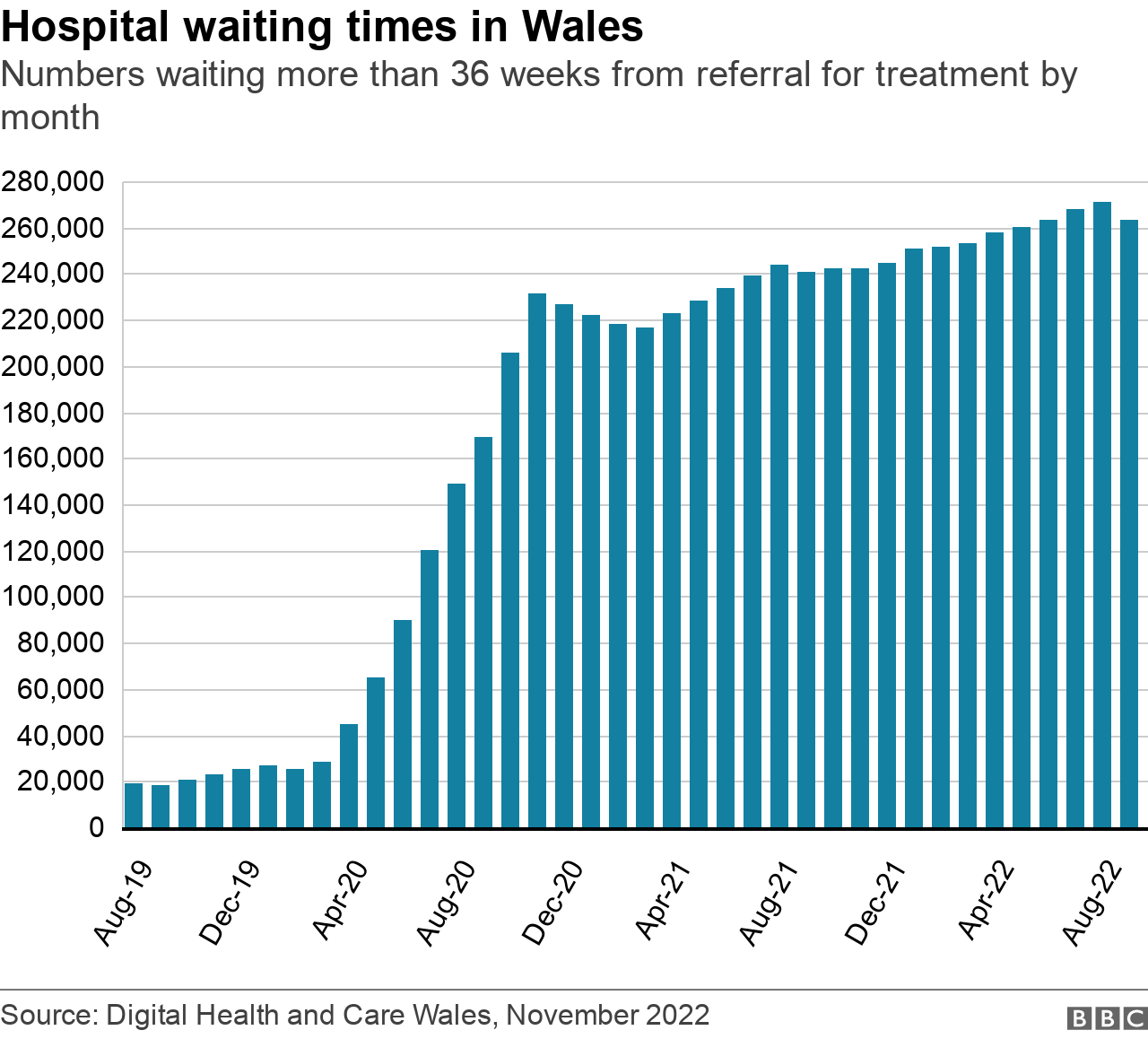
Ambulance response times have been reaching record lengths.
We're told hospitals cannot discharge patients quickly enough because of a lack of social care.
Add to the mix an impending strike by nurses and ambulance staff in disputes over pay and you can understand why Health Minister Eluned Morgan has described her job this winter as "hell on Earth".
Extra funding is coming from Westminster, but there's an authoritative warning from Cardiff University's Wales Governance Centre that it might not be enough to cope, external with post-pandemic pressures.
The additional funds came from Chancellor Jeremy Hunt's autumn statement, but his generosity pales compared to the cost of inflation.
Rising costs could wipe out an estimated £1.4bn of the Welsh government's budget over the next two years, making life difficult for all public services, not just the NHS.
Cost of living
The outlook for households is bleak. Incomes in Wales steadily improved for decades, until the mid-2000s financial crash.
The slump is expected to continue for years yet.
The Welsh government has tried to take the edge off sharp increases in energy costs.
Emergency grants are available through a special fund. Extra cash for food banks and warm hubs has been provided.
A one-off payment of £200 has been available for people on benefits.
Continuing that support into the next financial year will require Ms Evans to find £126m from somewhere.
Crucially, the Welsh government says the assistance it provides will be restricted to those who need the most help.
That's different from signature policies such as free school meals and free prescriptions which are available to everyone.
Public sector pay
Rebecca Evans holds the purse strings for thousands of people's wages in the public sector.
Around 245,000 workers are employed by a service which is, ultimately, run from Cardiff Bay.
The Welsh government blames Westminster for failing to provide the cash needed to pay people more.
But that argument doesn't make the headache less acute.
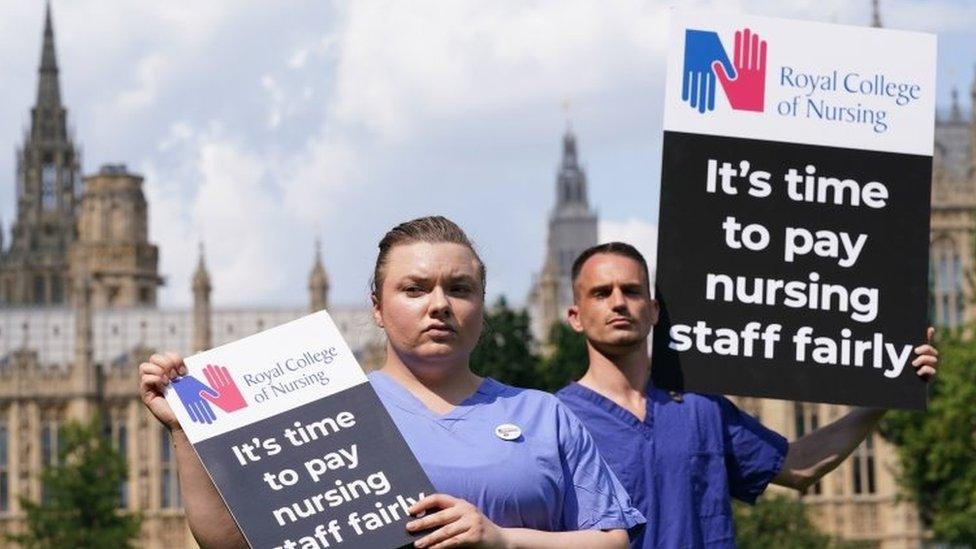
The Royal College of Nursing is asking for a 19% pay rise
Were wages to keep up with a 10% rate of inflation it would add a whopping £700m to the bill next year.
Matching this unexpected hike in inflation will be all but impossible, say ministers, meaning wages will shrink in real terms.
This is all happening after almost a decade of austerity when wages were squeezed and the public sector workforce shrank.
Reducing the workforce still further might release money to increase wages. Plundering other parts of the budget is another option. Neither are palatable.
The economy
To help them through the tough times ahead, businesses are being offered extra help with a tax bill.
It was announced on Monday that the budget will knock 75% off the business rates of pubs, cafes and shops - up from 50% this year.
It matches what is happening in England, but is arguably a "blunt" instrument to deal with a recession, the Wales Governance Centre (WGC) says.
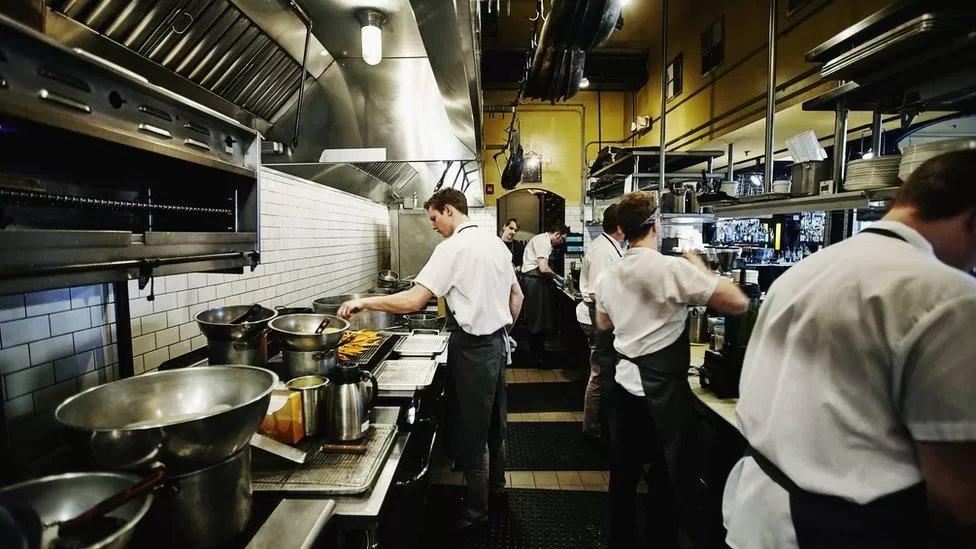
Business rates are being cut to help the hospitality, retail and leisure sectors
Ms Evans got some extra financial firepower because the Chancellor channelled funding into business rate relief in England.
As well as the help for the retail, leisure and hospitality sectors, some of the money is being used to copy Mr Hunt's decision to tinker with the formula that calculates rates. That decision spares businesses from a whopping inflation-driven hike in next year's rates.
But the economy is still entering an uncertain period. Businesses don't know yet what will happen in April when UK government support for energy bills is due to expire.
Tax
Additional funding from Ms Evans is unlikely to be enough to absorb the pressure on council budgets.
As a result, council tax payers could face "significant increases" in the coming years, the WGC says.
There is a more direct way that the Welsh government can alter your tax bill - via income tax.
Labour has a manifesto commitment to avoid tax rises "for at least as long as the economic impact of coronavirus lasts".
The party defined that as needing to see "a strong recovery in personal finances" before tinkering with taxes.
Nevertheless, ministers have not ruled out increasing income tax in this budget. Plaid Cymru has been calling for them to do so.
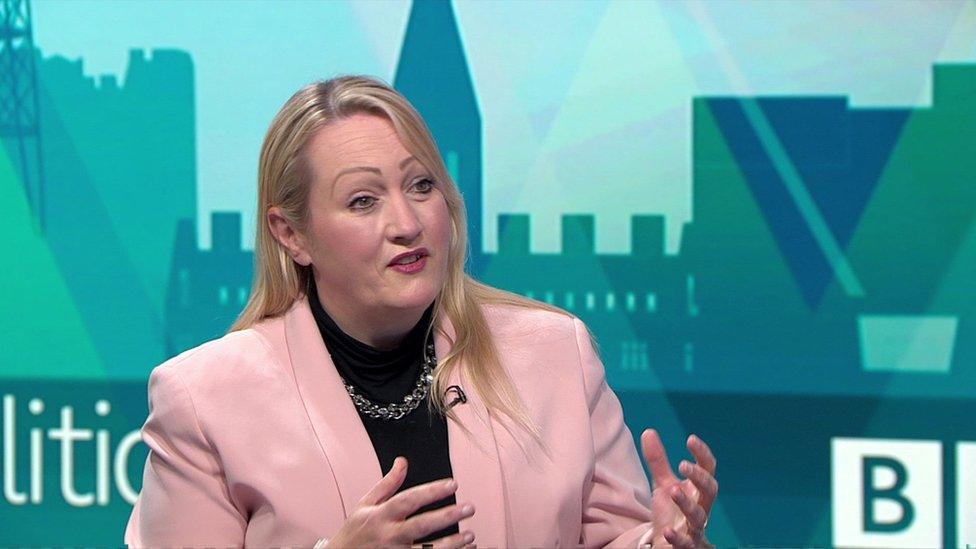
Rebecca Evans will publish her budget on Tuesday afternoon
The Wales Governance Centre estimates that an extra 1p increase in all three tax bands would raise £275m next year and £288m the year after.
In October, Mark Drakeford said the case for a tax rise would be "powerfully considered".
But that was in the immediate aftermath of Kwasi Kwarteng's tax-cutting mini budget, which has since been scrapped.

BAFTA CYMRU WINNERS: Celebrate the best television from Wales

- Published1 December 2022
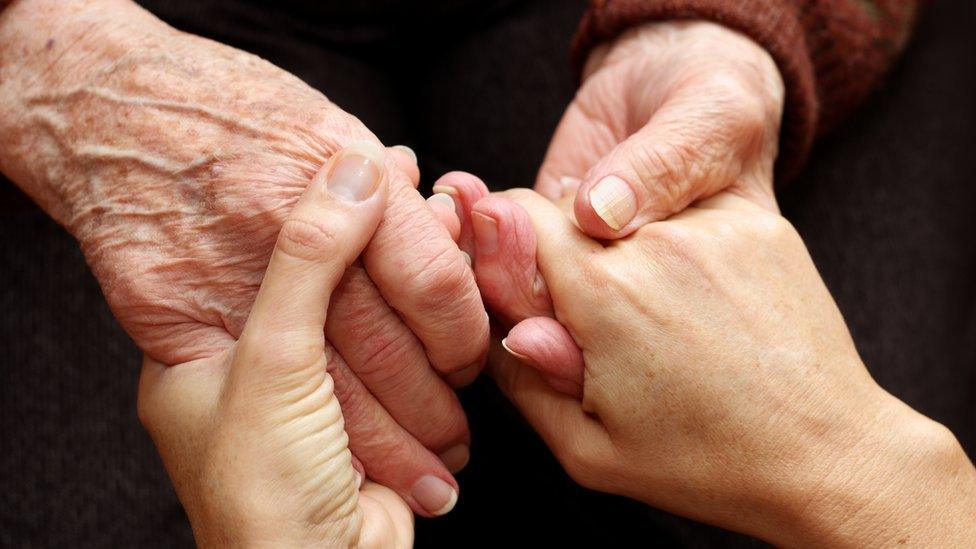
- Published17 November 2022
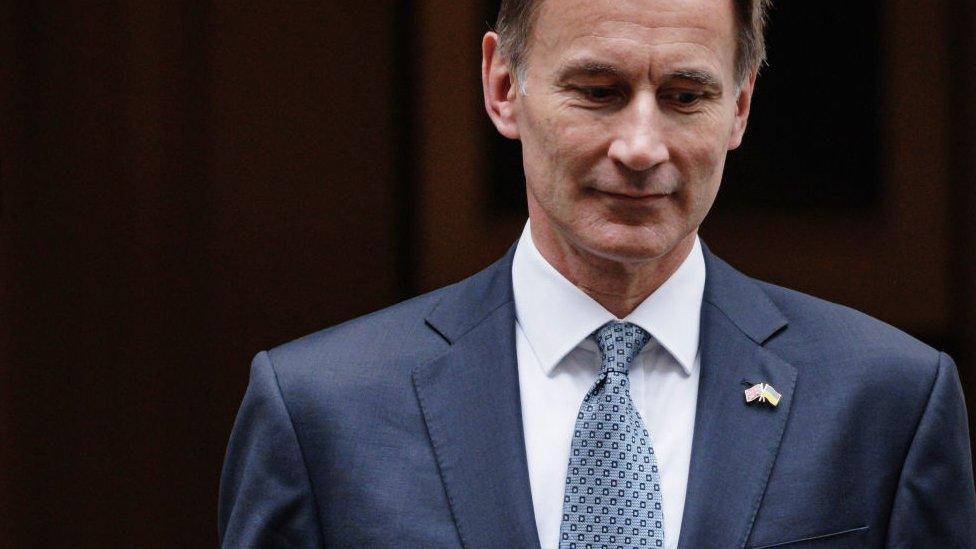
- Published28 October 2022
